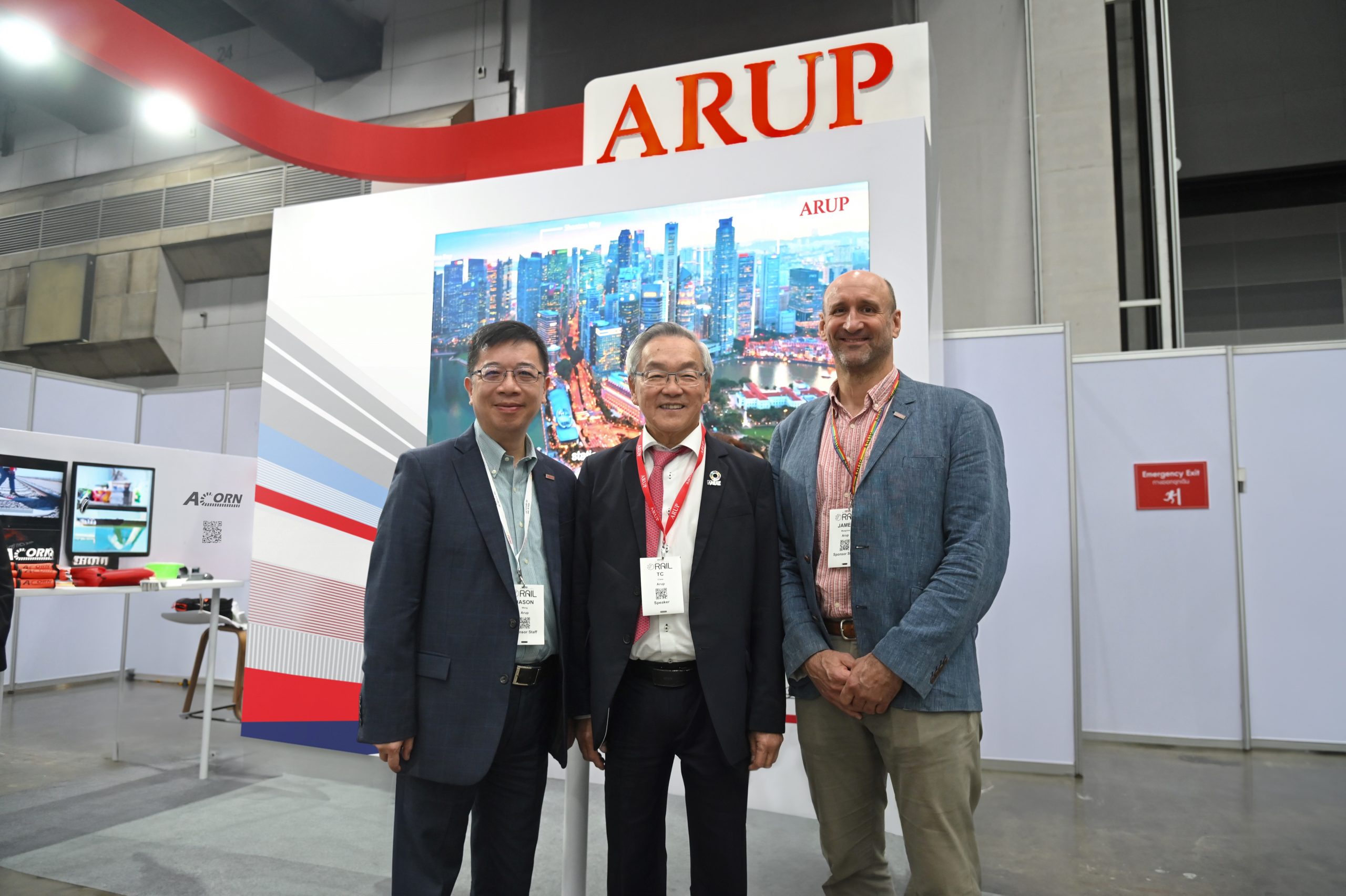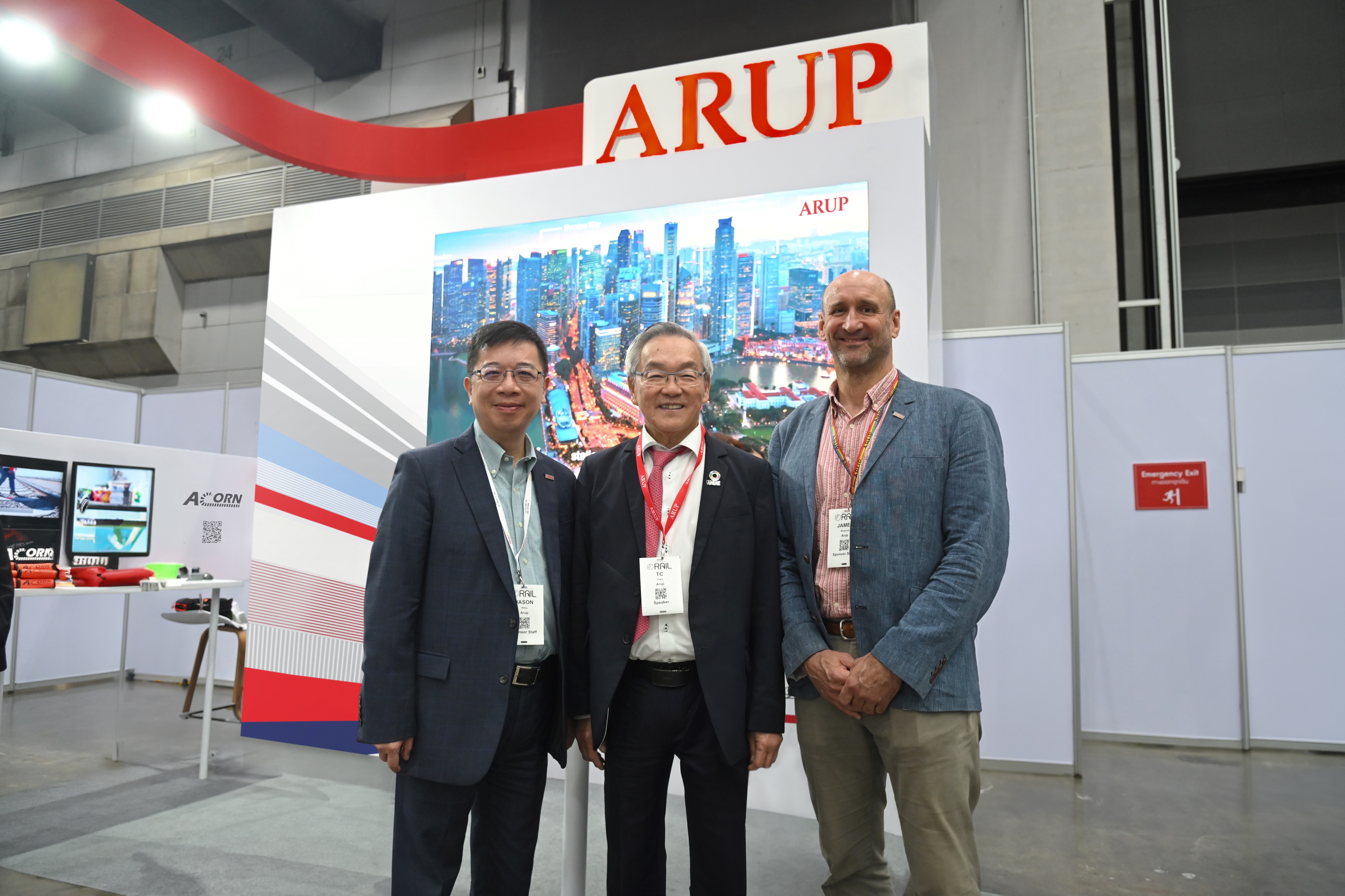Arup paves the way for resilient railways at Asia Pacific Rail




During the opening keynote session, TC Chew, Global Rail Leader at Arup, discussed ideas for ‘Unleashing Asia’s next generation of rail infrastructure’ with leaders from top rail organisations. He also emphasised the urgent need to make rail networks resilient against the impacts of extreme weather due to climate change.
“In face of the climate crisis, it is essential that rail resilience planning becomes integral to all investment decisions so that rail operators can continue to run the quality services their passengers expect. Railways have enormous potential for reducing global transport emissions and combatting climate change, but this is only possible if they can cope with the effects of extreme weather we are already experiencing. To accommodate and attract more passengers, proactive steps must be taken to build climate resilience, without delay,” said TC.
Arup’s Rail Resilience Framework outlines a proactive, whole-system approach to resilience planning across three key dimensions: assets, operations and ecosystems; leadership and strategy development; and the wider impacts on economy and society. It sets out clear goals and practical actions to achieve enduring resilience across rail networks. The framework also highlights the huge toll that extreme weather events have on railways, communities and cities. By adopting a holistic response, we can ensure that solutions and actions withstand a wide range of impacts, enhancing safety and reliability in daily rail services.
While transport networks continue to drive economic growth, its role as a catalyst for decarbonisation and sustainable development should also be emphasised. James Musgrave, Director, East Asia Transport Leader at Arup said, “Building integrated and reliable transport systems is crucial to support communities to thrive and drive economic growth. Planning for resilient transport infrastructure requires us to look beyond existing organisational boundaries to collaborating effectively across public and private sectors to develop whole-system resilience.”
To tackle increasing urban transport congestion, evolving travel behaviours, climate change challenges and rapid technological advancements, innovation and collaboration are key to shaping a better future for rails.
Jason Wong, Director, East Asia Rail Leader at Arup said, “The sustainability transformation in the rail industry opens a wealth of opportunities for future transport. We must champion a modal shift and empower a rail-based transport ecosystem that is safer, greener, and smarter. By leveraging the right technologies and data analytics, we can upgrade existing systems and enhance adaptability, paving the way for a more sustainable future.”
Three leaders from Arup spoke at the Asia Pacific Rail 2024 on major topics in railway development:
- Manpreet Mann, Thailand Rail Systems Lead, on ‘Realtime data transmission and management for predictive analytics’;
- Alice Reis, Australasia Rail Business Leader, on ‘Paving the way for resilient rail’; and
- David Moran, Director of Digital Services in Transport, Asia-Pacific, on ‘Better data for better railways: A whole lifecycle approach’.
Hashtag: #RailResilience #Rail #SustainableDevelopment #FutureProof
The issuer is solely responsible for the content of this announcement.
About Arup
Dedicated to sustainable development, Arup is a collective of 18,000 designers, advisors and experts working across 140 countries. Founded to strive for humanity and excellence in everything that we do, we collaborate with our clients and partners, using imagination, technology and rigour to shape a better world.
Recent Posts
AIA Hong Kong continues to lead the insurance industry with 9 market No.1 in 2024
Number of New Business Policies tops the market for 11 consecutive years HONG KONG SAR…
Feng Wei Ju and 8½ Otto e Mezzo BOMBANA Garner Coveted Diamond Awards in Black Pearl Restaurant Guide 2025
MACAU SAR - Media OutReach Newswire - 25 April 2025 - 2025 Black Pearl Restaurant…
Creww and Real Madrid Next launch Batch 2 of “Real Madrid Next Accelerator for Asia”
TOKYO, JAPAN - Media OutReach Newswire - 25 April 2025 – Creww Inc. (Japan Office:…
Digital Storytelling: “Zhengzhou in Cultural Relics” Debuts with AR Reconstructions Global Premiere on International Day for Monuments and Sites
ZHENGZHOU, CHINA - Media OutReach Newswire - 25 April 2025 – On International Day for…
Chinese and foreign guests gather to talk about innovation and development of Museum in Liangzhu, Hangzhou
HANGZHOU, CHINA- Media OutReach Newswire - 25 April 2025 - From April 23 to 25,…
Hang Lung’s 65th Anniversary Celebrations Arrive at Shanghai Grand Gateway 66 and Plaza 66 Debut of “ButterBear” & Takashi Murakami’s Ohana Hatake Pop-up
Fuel double-digit growth in foot traffic and sale HONG KONG SAR and SHANGHAI, CHINA -…


